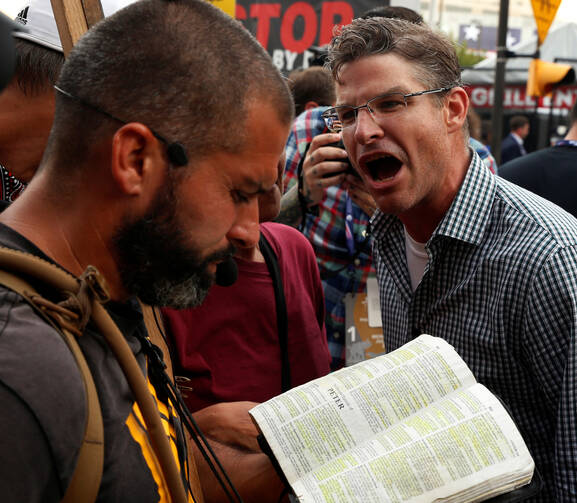The 2016 election season carries a high level of perceived incivility underway in the U.S. and as well as rampant online harassment by social media users expressing political viewpoints, according to recent surveys.
According to a "Civility in America" survey by the global firm Weber Shandwick, some 95 percent of Americans said incivility is a problem. Seventy-four percent said civility has declined in the past few years, but 67 percent said it is a major problem today.
The survey also showed nearly all likely voters said a candidate's tone or level of civility will be a big factor in how they cast their votes in the 2016 presidential election.
Likely voters described the presidential race to date as more uncivil (58 percent) than civil (39 percent), according to the Weber Shandwick research.
Republicans likely to vote were aligned with this overall view (55 percent to 43 percent, respectively), while Democrats likely to vote said they see the race as somewhat more uncivil (60 percent to 37 percent).
The online survey was conducted from Jan. 7-14 among 1,005 American adults, 18 years and older. Likely voters were defined as those who said they are likely to vote in their state's primary or caucus contest. No margin of error was included with the data.
Another online poll, conducted by Rad Campaign, craigconnects and Lincoln Strategies indicates a majority of adults self-reporting that they have been harassed online for posting political views on sites, most notably Facebook.
The survey further notes that:
• Boomers experience political harassment more than any other generation. More than three-quarters of adults ages 55-64 who are harassed online experience political harassment (79 percent).
• Across all platforms, Facebook is the dominant location for harassment, even among heavy Twitter users.
• Three-quarters of millennials (72 percent) are harassed online by someone they know, not by strangers.
The poll, spearheaded by craigslist founder Craig Newmark though his craigconnects initiative, was created in partnership with Rad Campaign, a web agency that helps nonprofits promote their cause, and conducted by Lincoln Park Strategies, an analytic research firm. The poll asked 1,017 Americans ages 18 and over about their experiences with online harassment. The margin of error is plus or minus 3.07 percentage points.
Social media gives people the opportunity to make comments that aren't backed up by facts and while reporters are getting more critical about checking facts from politicians, there is still a challenge for lawmakers to back up what they say, according to Mercy Sister Peg Maloney, who teaches Catholic social teaching at Regis University's College for Professional Studies in Denver.
"It is utterly ridiculous for a candidate like Donald Trump to say he will build a wall that will keep immigrants out of our borders, or for a candidate like Hillary Clinton to say they can streamline all the banks as soon as they come into office," Sister Maloney told Catholic News Service.
"People should expect real dialogue and discussion and not just a battle of words," she said. "We get overwhelmed when they look at the enormity of national debt, the need for health care, jobs—we feel so overwhelmed by it and we can either ask God for the graces to find solutions or we can get angry and fight against those who want to help us."








